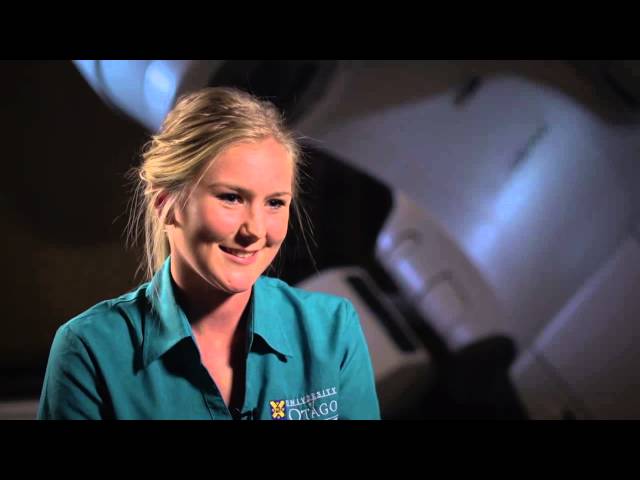Radiation
Oncology Team
A highly trained radiation oncology team takes care of people having radiation therapy.
Radiation Oncologists
A radiation oncologist is a specialist medical doctor who is trained to use radiation therapy and care for people with cancer. Radiation oncologists use radiation therapy to cure and help the symptoms of cancer.
Radiation oncologists assess people with cancer, work out a treatment plan, oversee treatment and check progress. They sometimes order tests and imaging, prescribe medications, and talk to other doctors caring for a person with cancer.
Radiation oncologists work closely with radiation therapists and radiation oncology medical physicists to ensure radiation therapy is safe and accurate. They also take care of people after treatment to see how well the treatment worked and manage any extra treatments that might be needed.
Radiation oncologists regularly meet people with cancer, and their carers to provide information and answer questions at every stage of treatment.

A Career in Radiation Oncology – Radiation Oncologists
Radiation Therapists
Radiation therapists deliver radiation therapy and people having treatment see their radiation therapists daily. Radiation therapists work closely with the radiation oncologist to work out the treatment plan. They also operate the machines and imaging equipment.
People become very familiar with their radiation therapists during treatment. Radiation therapists can answer questions and help people find additional support if needed.


Radiation Oncology Medical Physicists
Radiation oncology medical physicists (ROMPs) are experts in the physics of radiation, especially how radiation impacts the human body.
ROMPs check the safety of people having radiation therapy as well as staff. They also work with other members of the radiation oncology team, IT professionals and engineering staff to ensure all radiation therapy equipment and computers are in perfect working order.
Like all members of the radiation oncology team, ROMPs do regular quality checks on the equipment to ensure people receive accurate and safe treatments. They help radiation oncologists and radiation therapists plan treatments.
People having radiation therapy don’t usually meet the ROMP but their work is very important for ensuring treatment is safe and accurate.

A Career in Radiation Oncologist – Radiation Oncology Medical Physicist
Radiation oncology nurses
Cancer treatment can be hard for people both physically and emotionally. Radiation oncology nurses are there to support people having treatment, as well as their carers during treatment and beyond.
Radiation oncology nurses keep an eye on the overall health of people having radiation therapy. They have a good overall understanding of general health, cancer medicine and radiation therapy. They can answer many questions and offer physical and psychological support before, during and after the treatment process.
- Benefits and Effectiveness
- Treatment Process
- Radiation Oncology Team
- Potential Side Effects
- Indigenous and Maori Care
- Frequently Asked Questions
- Other Useful Resources
- External Beam Radiation Therapy (EBRT)
- Brachytherapy
- Stereotactic Radiosurgery (SRS)
- Stereotactic Ablative Radiotherapy (SABR)
- Superficial Radiation Therapy (SXRT)
- Particle Therapy
- Benefits and Effectiveness
- Treatment Process
- Radiation Oncology Team
- Potential Side Effects
- Indigenous and Maori Care
- Frequently Asked Questions
- Other Useful Resources
- External Beam Radiation Therapy (EBRT)
- Brachytherapy
- Stereotactic Radiosurgery (SRS)
- Stereotactic Ablative Radiotherapy (SABR)
- Superficial Radiation Therapy (SXRT)
- Particle Therapy
Radiation Oncologist
The best person to talk to is a radiation oncologist. You can ask your doctor for a referral to find out if radiation treatment is right for you.
GPs and Health Professionals
Information for any health professional involved in a patient's cancer care with a particular focus on primary care providers.
Talking to Your Doctor
Your GP or other doctors in the cancer team can organise a referral to a radiation oncologist.
Treatment Centres
Search and find your closest Radiation Oncology Treatment Centre.




